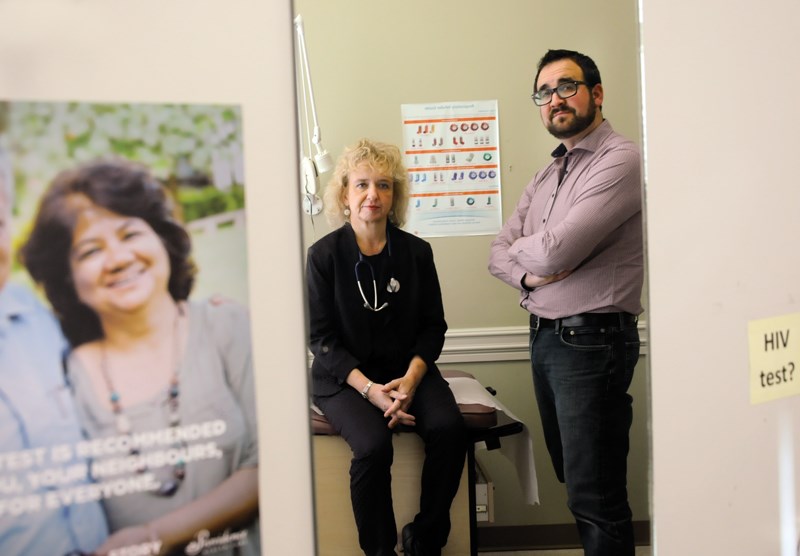Grade 9 students in North and West Vancouver schools will have mental health education added to their curriculum starting in the new year.
The mental health literacy program, developed on the North Shore, is the first of its kind in provincial public schools.
The idea is to de-stigmatize mental illness, let teens know the difference between normal adolescent anxieties and more serious problems, educate students about their brains and offer tools and resources to help when there are problems.
“It’s something we should be talking about,” said Jeremy Church, a district principal with the North Vancouver School District. Church, who is also principal at Mountainside secondary, home to the North Vancouver
School District’s alternative programs, said he thinks teens are eager for information on the topic. “I think that they really do want to learn about it,” he said. “They see it happening.”
The unique educational program is the result of work done by a collaborative local action team made up of mental health and social service workers, doctors, North and West Vancouver school staff, police and First
Nations who have been working to address youth mental health needs on the North Shore.
Teachers will use curriculum developed by mental health expert Dr. Stan Kutcher of Dalhousie University to provide between six and 10 hours of mental health education to Grade 9 students between February and April of 2017, in classes like PE or career and personal planning.
Students will learn what kind of stress is normal, techniques like mindfulness to manage anxiety, what kinds of symptoms can signal deeper problems as well as normal development of the teenage brain and how substance use can contribute to the development of mental health problems.
The task force has chosen to target Grade 9 students because that’s a typical age for the onset of mental health disorders, said Church. Experts say that makes it an ideal time to get information to those students.
Church said it’s also important for kids and their parents to know that some stress and anxiety is normal. “It’s not terrible for kids to manage some levels of stress,” he said, adding that’s what most adults have to learn to do during the course of everyday life. It’s also important for teens to know the signs that an issue like depression is more serious, he said, and where to turn for help.
Just educating students about the issues can help destigmatize mental illness, he said, “So people don’t feel like they have to hang their head in shame” because they themselves or a family member is dealing with that.
Dr. Hayley Broker, a North Shore physician and co-chair of the youth mental health action committee, said those who work with youth at local clinics are seeing a need for help with issues like eating disorders, anxiety and depression.
Those are the most common mental health problems but can impact a teen’s ability to go to school, hold a job, and generally have a happy home life, she said.
If problems can be flagged and help offered early on, the outcomes will be better than they would be if everyone waits until those problems have reached a crisis, she said.
Teens also need to know that certain drugs can increase the tendency to develop mental illness among those who are susceptible, she said.
If the program on the North Shore is successful, there’s no reason similar programs can’t be developed for other areas of the province, said Church, adding he’s already received emails from other school districts and youth mental health nurses expressing interest in the program.



